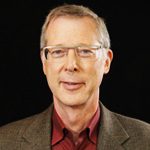 The IAOMT appreciates the opportunity to assist you with finding the information you need about biological dentistry. Click on the question below to see the IAOMT’s answer:
The IAOMT appreciates the opportunity to assist you with finding the information you need about biological dentistry. Click on the question below to see the IAOMT’s answer:
No. The IAOMT is a non-profit organization, and therefore, we cannot offer dental and medical advice to patients. We must advise patients to discuss any health care needs with a licensed professional. To be even more specific, you should discuss your oral health care needs with your dentist.
To reiterate, any information provided on this website is not intended as medical/dental advice and should not be interpreted as such. Likewise, you should not write or call the IAOMT for dental/medical advice. If you seek medical advice, please consult with a health care professional. Remember that you must always exercise your own best judgement when using the services of any health care practitioner.
No. The IAOMT provides educational resources to professionals, both through our website and membership materials (which include a variety of educational programs). While we offer these educational programs and resources to our members, each member of the IAOMT is unique as to which educational resources are utilized and how practices associated with biological dentistry and these resources are implemented. What this means is that the education level and specific practices are dependent upon the individual dentist.
The IAOMT makes no representation as to the quality or scope of a member’s medical or dental practice, or as to how closely the member adheres to the principles and practices taught by the IAOMT. A patient must use their own best judgment after careful discussion with their health practitioner about the care that will be provided.
All IAOMT member dentists are offered the opportunity to further their knowledge of biological dentistry by participating in workshops, online learning, conferences, and certifications. These activities are reported on the practitioner’s profile in our Search for an Dentist/Physician Directory. Note that dentists who are SMART certified have received education in amalgam removal that involves learning about the application of the rigorous safety measures, including the utilization of specific equipment. As another example, dentists who have achieved Accreditation from the IAOMT have been tested in the comprehensive application of biological dentistry, including units on Safe Removal of Amalgam Fillings, Biocompatibility, Heavy Metal Detoxification, Fluoride Harms, Biological Periodontal Therapy, and Root Canal Hazards. Fellows have achieved Accreditation and an additional 500 hours of credit in research, education, and/or service. Masters have achieved Accreditation, Fellowship, and an additional 500 hours of credit in research, education, and/or service.
The IAOMT has a number of helpful resources about biological dentistry. These include the following:
- Oral Health Integration and Biological Dentistry
- Introduction to Biological Dentistry: Oral Medicine, Dental Toxicology
- IAOMT Position Papers
- Dental Mercury Facts
- Safe Amalgam Removal
- Alternatives to Mercury Amalgam Fillings
- Fluoride Facts
- Online Learning Videos
In addition to the materials above, which represent our most up-to-date and popular resources, we have also collected articles about biological dentistry. To access these articles, make a selection from the following categories:
- Biological Dentistry (topics other than those listed below)
- Composites/Bisphenol A
- Endodontics/Root Canal Therapy
- Fluoride
- Jawbone Osteonecrosis/Cavitations
- Mercury
- Periodontics/Gum Disease
The IAOMT has a number of helpful resources about mercury. These include the following:
- IAOMT POSITION PAPER AGAINST DENTAL MERCURY AMALGAM FILLINGS
- Dental Mercury Facts: This connects to all of our webpages about mercury
- Fact Sheet on Dental Mercury and the Environment
- Fact Sheet on Dental Mercury and Human Health
- Fact Sheet on Mercury Vapor Toxicity
- Comprehensive Review on Mercury in Dental Amalgam Fillings
- The Science Behind Dental Mercury and Other Environmental Toxicants
- Seven Common Misconceptions about Dental Mercury
- Dental Amalgam Mercury and Multiple Sclerosis (MS): Summary and References
- Understanding Risk Assessment and Dental Amalgam Mercury
- Take Action against Dental Amalgam Mercury
- Safe Amalgam Removal
- Alternatives to Mercury Amalgam Fillings
- Mercury Hygiene in Dental Clinics
- Online Learning Videos:
In addition to the materials above, which represent our most up-to-date and popular resources, we have also collected articles about mercury. To access these articles, make a selection from the following categories:
The IAOMT recommends patients start by visiting www.theSMARTchoice.com and learning from the materials presented there. Also, you can click here to read the Safe Mercury Amalgam Removal Technique (SMART) protocol with scientific references.
Due to mercury releases, the IAOMT recommends that polishing, placement, removal, or any disruption of a dental mercury amalgam filling should not be conducted upon patients who are pregnant or lactating and should not be done by dental personnel who are pregnant or lactating.
For more information about dental mercury and pregnancy, see the following articles:
- IAOMT POSITION PAPER AGAINST DENTAL MERCURY AMALGAM FILLINGS
- Dental Mercury Facts: This connects to all of our webpages about mercury
- Fact Sheet on Dental Mercury and Human Health
- Comprehensive Review on Mercury in Dental Amalgam Fillings
- Dental Amalgam Mercury and Risks to Fetuses, Infants and Children
The IAOMT has a number of helpful resources about fluoride. These include the following:
- IAOMT POSITION PAPER AGAINST THE USE OF FLUORIDE
- Fluoride Facts: This connects to all of our webpages about fluoride
- Sources of Fluoride Chart
- Fact Sheet on Fluoride Exposure and Human Health Risks
- Fact Sheet on Fluoride and the Environment
- Think Twice about Fluoride: Recognizing the Lack of Safety for this Chemical
- IAOMT Comprehensive Review on Artificial Water Fluoridation
- IAOMT Comprehensive Review on Fluoride in Dental Products
- IAOMT Comprehensive Review on Fluoride in Drugs (including Supplements)
- Fluoride Toxicity: Overview and Examples
- Avoid Fluoride Now: Four Easy Steps to Become Fluoride-Free
- Summary of IAOMT Position Paper against the Use of Fluoride
- Online Learning Video: Fluoride
In addition to the materials above, which represent our most up-to-date and popular resources, we have also collected articles about fluoride, which you can access by clicking on the link here:
The IAOMT has several helpful resources related to composite fillings. These include the following:
- Alternatives to Mercury Amalgam Fillings
- IAOMT Position Paper Against Dental Mercury Amalgam Fillings
In addition to the materials above, which represent our most up-to-date and popular resources, we have also collected articles about composite fillings, which you can access by clicking on the link here:
The IAOMT is in the process of collecting resources related to periodontics and currently does not have an official position on this topic. Meanwhile, we suggest the following:
Additionally, we have also collected articles about periodontics, which you can access by clicking on the link here:
The IAOMT is in the process of collecting resources related to endodontics and root canals and currently does not have an official position on this topic. Meanwhile, we suggest the following:
Additionally, we have also collected articles about endodontics, which you can access by clicking on the link here:
The IAOMT is in the process of collecting resources related to jawbone osteonecrosis (jawbone cavitations). Currently, we suggest the following:
Additionally, we have also collected articles about jawbone osteonecrosis (jawbone cavitations), which you can access by clicking on the link here:
Please use this website, as all of our pages have helpful information! If you’re wanting to learn more about the IAOMT as an organization, we recommend starting with these pages:
Dr. Jack Kall, DMD, FAGD, MIAOMT, is a Fellow of the Academy of General Dentistry and a past President of the Kentucky chapter. He is an Accredited Master of the International Academy of Oral Medicine and Toxicology (IAOMT) and since 1996 has served as the Chairman of its’ Board of Directors. He also serves on the Bioregulatory Medical Institute’s (BRMI) Board of Advisors. He is a member of the Institute for Functional Medicine and American Academy for Oral Systemic Health.



